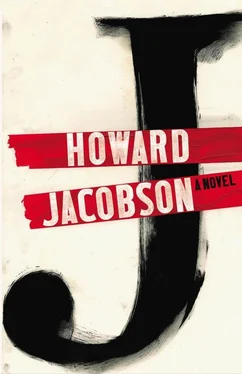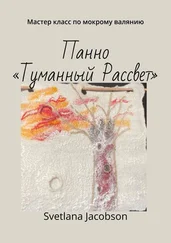‘And did they?’
‘Let me know?’
‘Find anything out.’
‘No idea.’
She shuddered in his arms, her heart aflutter — ‘Someone dear to me has just died,’ she said, and then when Kevern sat up in alarm she laughed to reassure him. ‘A silly superstition from my part of the world.’
But he was a superstitious man himself. Only a fool, he thought, wasn’t. What if her heart had fluttered out of time — an anticipatory flutter — because the someone close to her who had died was him.
A moment later there was a knock on their door. Their hearts leapt together. Who knew they were here?
They needn’t have been alarmed: it was only the motherly proprietor wondering if they wanted a hot-water bottle.
They said no.
They had each other.
ii
Ashbrittle was deserted when they went strolling after breakfast. But somehow aflutter too, like Ailinn’s heart, as though with affrighted ghosts.
They stared about them. Soul-departed terrace after soul-departed terrace, mocking the moderate, clerical sociability for the expression of which they’d been lovingly designed. Expectant, calling-card residences at which no one called. The stone a melancholy, rusted yellow. The brass doorbells black from never being pushed. A light rain seemed not so much to fall from the sky as rise from the cracked paving stones. A couple of shops selling local-history pamphlets (no one wanted a complete book), pewter goblets, silver spoons featuring the diocesian crest and of course postcards of the cathedral were open, but many more were boarded up. The river had a film of grease on it, like gravy left to go cold. The Bishop’s Barn, a one time favourite with tourists, was closed for renovation, but the sign saying so was in need of renovation itself. Graffiti was scrawled on its strong yet quiet Jacobean door. Kevern couldn’t read the words or decipher the symbols but to him all graffiti was the language of alienated hate, even when it was urging ‘Love’.
They walked in silence under High Street Gate which housed a library, also indefinitely closed for renovation, and found Cathedral Close. ‘I have a soft spot for cathedral closes,’ Ailinn said, looking around. ‘I always feel people must be living such good lives in them.’
‘Well maybe they are,’ Kevern said. ‘That’s if anyone is living here at all. It feels as if they’ve all gone. A plague-bell tolled and they all ran for it. Unless they’re on their knees in their cellars, saying sorry.’
Ailinn stopped and told him to be quiet. She could hear music coming from the grandest of the houses. She wanted it to be Bach or Handel but it was only a utility-console ballad wondering where we would be without love.
‘In the shit,’ Kevern said. To himself. He wasn’t going to use language like that to the woman he loved.
She took his arm and moved him on in what, as a devotee of cathedral closes, she knew to be the direction of the main entrance to the cathedral itself. Her early years had been spent in an orphanage that was an adjunct to a monastery. She knew her way around church architecture.
‘The gargoyles have been defaced,’ Kevern noted, looking up. ‘They have no features. No bent noses, no bulging eyes, no pendulous lips.’
‘Years of bad weather,’ Ailinn guessed.
‘Well that’s a kind interpretation. But I bet this is deliberate. They’ve been smoothed over — made to look like nothing and nobody.’
‘Botoxed, you reckon?’
He laughed. ‘Morally Botoxed. Rendered inoffensive.’
‘Still — isn’t that better than the way they looked before?’
‘Maybe. But they might as well not be here in that case. If they aren’t going to remind you of evil, they have no function.’
Ailinn reminded him that their function was to carry water away from the building.
‘I meant spiritual function,’ Kevern said piously.
Inside, the light struggled to pierce the dust of the stained-glass windows. Far apart from each other, two elderly ladies, dressed in black, prayed, one with her face in her hands.
‘There you are,’ Ailinn whispered.
‘I’m not sure they count,’ Kevern whispered back. ‘They look as though they’ve been here for two hundred years.’
‘It can take a long time,’ Ailinn said, ‘for God to answer your prayers.’
‘More time than we have.’
‘But not more time than they have.’
‘And how does he adjudicate between prayers,’ Kevern wondered, ‘when they are savagely opposed? What if these two are praying for the destruction of each other? How can he satisfy the desires of them both?’
‘With difficulty. That’s why it takes him so long.’
‘I take comfort at least,’ Kevern said, ‘in there being so few people making their devotions here. It must mean that the rest of them have what they want.’
‘God help them,’ Ailinn said.
‘God help us all,’ Kevern agreed.
They let their eyes wander absently over the crucifixes and Bible scenes, neither of them willing to make the effort to determine if any of the art was distinguished. They paused before an elaborately carved stone shrine, virtually a throne, built over a small slab, no bigger than a pillow, which announced itself as containing the blessed remains of Little St Alured of Ashbrittle, killed by —.
Kevern took out his glasses to examine the carving. ‘Well whatever else, they were wonderful craftsmen,’ he said. ‘If I could do this with wood. . such lightness, you think you’re looking at flowers. Don’t quote me on this, but I almost fancy I can see the poor little bugger’s soul ascending to heaven on a tracery of stone petals.’
But Ailinn was more interested in deciphering who the poor little bugger was killed by. ‘This hasn’t been worn away by time,’ she said. ‘It’s been scratched out.’
‘Maybe they decided they had the wrong killer.’
‘Then why didn’t they replace the name with that of the right one?’
‘Could still be investigating. The case might be sub judice .’
‘After nine hundred years?’
Kevern conceded it was unlikely. ‘But then justice, like God, grinds slowly. We should put Gutkind on to it.’
Ailinn knew how Kevern’s mind worked. You set it a problem and when it could come up with no answer, it came up with a joke. He had lost interest now in Little St Alured and how he was murdered, and by whom, and why someone or other — an individual with an axe to grind or the depleted might of the church — didn’t want anyone to know. She was the curious one. But in the end she too had to admit there were some things that had to remain a mystery.
They took the darkness of the cathedral out with them on to the street.
‘This place needs cheering up,’ Ailinn said. ‘It needs sunshine.’
‘It needs something. Pilgrims, I reckon. Believers. Some of the old dogmatism. You can’t have a church town without belief and you can’t have belief without intolerance.’
‘And you think that would liven it up?’
‘I do. All this penitential. .’
‘All this penitential what?’
He didn’t have the word. ‘You know. . gargoylelessness. If you want God you’ve got to have the Devil.’
‘I’m for neither,’ Ailinn said.
‘Then this is what you get.’
Glass shatters. They both hear it. She is at one end of the country and he is at another, yet still they hear it. The smashing mania, the shattering of every window in the land. After all the fires, all the beheadings, all the iron hooks and crowbars, the frenzy to kill has not abated. Only now it has become centralised. He is frightened, she less so. She thinks they’ve done their worst already. He thinks there’s always something further they might come up with; he has more admiration for the ingenuity of man; viewing things millennially, he thinks they haven’t even started yet. And look, he could be right. This time the mob wears uniforms, and answers to a higher authority even than God. She reads quietly, waiting for the knock. He hides his head. That is how they sit on the train heading east, looking out at the snow, not exchanging a word, she reading, he hiding his head. The train is not a surprise. They were always going to be put aboard this train. There are some among their fellow passengers for whom the train is a relief now that they are finally on it. In the snow everything will be washed away.
Читать дальше












